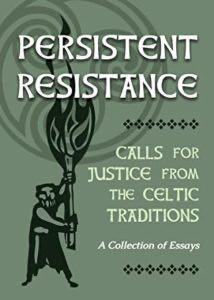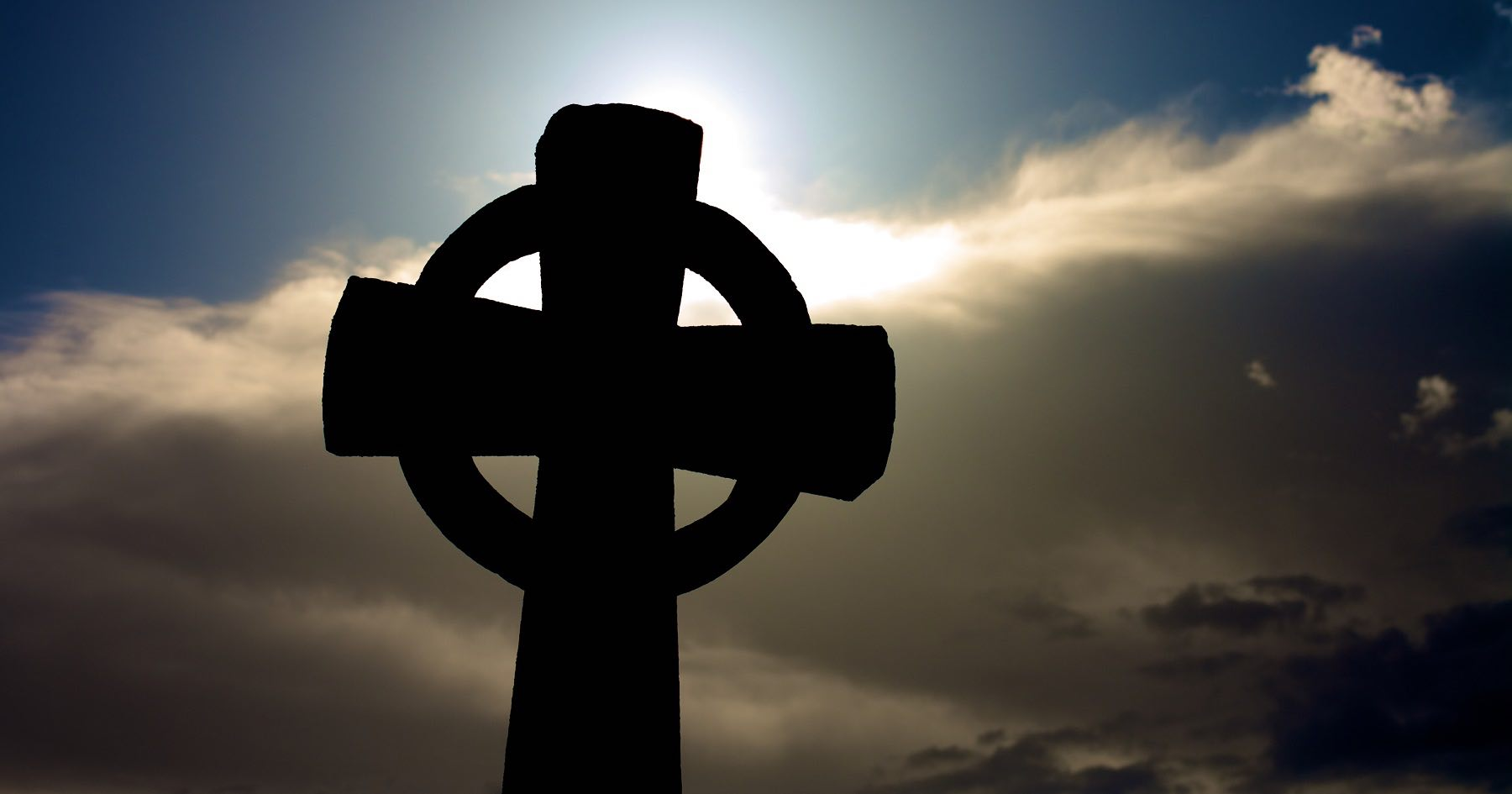 Book Review: Persistent Resistance: Calls for Justice from the Celtic Traditions: A Collection of Essays edited by Ellyn Sanna. Vestal, NY, Anamchara Books, 2019.
Book Review: Persistent Resistance: Calls for Justice from the Celtic Traditions: A Collection of Essays edited by Ellyn Sanna. Vestal, NY, Anamchara Books, 2019.
Although Celtic Christianity predates Roman Christianity in the Celtic Isles by centuries, it is often seen as a superficial New Age flower-power mashup — accused of being “pagan” by those unaware of the fuller positive meaning of that word. Or people are attracted to Celtic spirituality for all its seeming gentleness and earth-honouring poetry prayers, without realizing that there’s also a feisty justice-seeking side to it as well. Truth be told, I was among that latter group for a long time, and may have still lingered in the midst of this mistakenly shrunken interpretation were it not for this new collection of essays on Celtic calls for justice. While the first eleven short chapters are written by six main contributors, the book is also liberally sprinkled throughout with framed boxes of wit and wisdom drawn from numerous historical, literary and social justice heroes, who are given brief contexts in the twelfth chapter, “The Inspiration of Others’ Lives.”
The book begins by clarifying how the word “Celtic” is used in this volume, and how hard the word is to contain in any one definition, and then states the following:
“At the same time, we want to affirm that the spiritual characteristics so often labeled ‘Celtic’ are not unique to Celtic culture and tradition. They are particularly shared by many forms of indigenous spirituality, including that found in Africa, Australia, and the Americas. ‘Celtic spirituality,’ however, is a term that’s more familiar to the average reader.”
Indeed, many Indigenous traditions around the world resonate with the values and foci of what we’ve been calling Celtic spirituality. Therefore, a greater understanding of the one helps us appreciate these others as well.
The book goes on to deepen the understanding of these interconnections:
“The attributes most valued by adherents of Celtic spirituality — such as harmony with Nature, connection between the physical and spiritual worlds, and mystical experiences — are in fact common to indigenous groups worldwide. ‘Celtic’ Christianity has found enthusiastic reception in communities with predominantly black believers in Africa and among Christians in First Nation communities in North America, where the [shared] values … are perceived as antidotes to colonialist versions of the Christian message. These ‘indigenous’ values are by no means exclusive to pink-skinned people nor are they to people of browner pigmentation! They are the universal domain of people who originally lived in tune with the natural world (which is the root experience of all humans).”
In the first chapter, “What is Justice?”, Marjorie Bennet speaks of how she grew up in a church in which the justice of God meant God’s need to punish us for our sins, and that Jesus’ main role was to save us from this punishment. Bennet left behind that punitive understanding of a God who could not forgive us unless “His” son was tortured and violently killed. And she has been delighted to find in the Celtic view a Jesus concerned with building God’s reign in concrete ways, including lifting up the poor and vulnerable “from political and social oppression” by welcoming the marginalized, preaching on sharing wealth to meet everyone’s need, healing the sick and so on. Bennet also cites the excellent Celtic theologian Pelagius, or Morgan of Wales, who was similarly focused on helping the poor and oppressed by resisting systems of injustice.
In Chapter IV, Ellen Sanna speaks of those who have an “ostrich mentality” that implicitly condones injustice: “A selfish outlook that refuses to be disturbed by the plight of those who don’t have the luxury of burying their heads to escape a harsh reality.” In Chapter VI, we see a comparison between some basic Celtic tenets and the Jewish notion of “shalom,” which Walter Brueggemann called a “vision of wholeness” linking people not only with the divine, but with each other and the whole Earth “in a healthy, inclusive web of relationship.” Brueggemann sees shalom as pointing to the divine spirit who “is on the side of justice … concerned for the wellbeing of those who lack the power to secure it.” Therefore, Celtic ideas about justice are similar to deeply rooted Judeo-Christian ideas.
While this book counsels humility and as much gentleness as possible in confronting the many sources of injustice in our world, it’s no accident that one of the first framed wisdom quotes is from Elie Wiesel: “I swore never to be silent whenever and wherever human beings endure suffering and humiliation. We must always take sides. Neutrality helps the oppressor, never the victim.”
This is a stellar and wisdom-filled book, bringing much hope for a world of greater justice and peace. Often, Celtic spirituality is seen as being so gentle and benign that it would barely cause a ripple on the vast sea of human challenges to justice and equality. But as this collection of essays from a number of well-qualified authors demonstrates, Celtic spirituality also has “teeth” and “muscles” for addressing the great injustices of our times.




